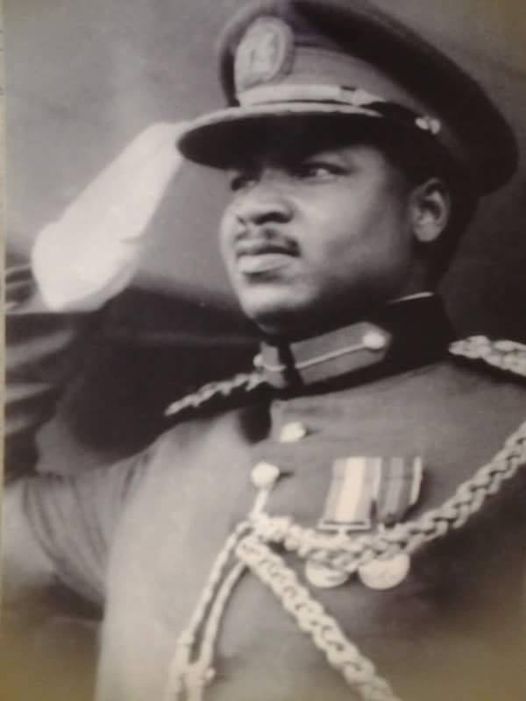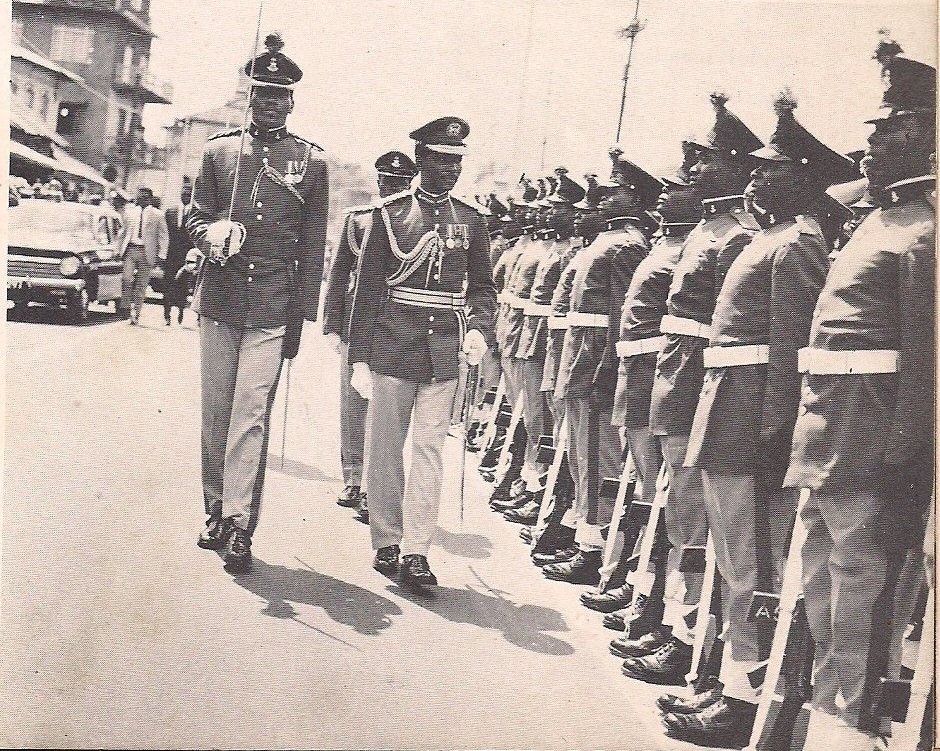MOTIVATIONAL MONDAY: BE CAREFUL WHO YOU TRUST
Major Donatus Okafor, the officer commanding the Federal Guards was tasked with the assassination of Brigadier Zakariya Maimalari. It was important Maimalari was cold dead if their revolution was to succeed.
#Thread
Major Donatus Okafor, the officer commanding the Federal Guards was tasked with the assassination of Brigadier Zakariya Maimalari. It was important Maimalari was cold dead if their revolution was to succeed.
#Thread

As Commander of the Southern Brigade in Apapa, Maimalari had under him all the fighting forces of the battalions. He could effectively mobilise the entire brigade even if the country was suddenly attacked by a neighbouring army.
When Okafor realised Maimalari had fled the house, he became very annoyed. He ordered his men to search the compound and shoot the Brigadier on sight; he was not to be given any opportunity to capitulate. Without Mai-Malari dead, they were doomed.
They knew their actions were high treason which carried the death penalty. Therefore they had to be successful or die trying.
Okafor then...desperately searched around Thompson Avenue, Brown Street, and Glover Road, even all the way to Bourdillon Road.
Okafor then...desperately searched around Thompson Avenue, Brown Street, and Glover Road, even all the way to Bourdillon Road.
Maimalari who had been hiding and running was trying to make his way to the Federal Guards barracks in his pyjamas when he heard and saw the light of an oncoming vehicle. He ducked into the shrubs again thinking it was Okafor and his men.
Instead, he undoubtedly recognised the red Mercedes Benz which belonged to his Chief-of-Staff and Brigade Major (BM), Major Emmanuel Arinze Ifeajuna, who was transporting the Finance Minister and the Prime Minister to the Mess.
It was not immediately clear to Maimalari that Ifeajuna was part of the mutineers. Instead, Maimalari saw Ifeajuna as his hope and dashed for him. Ifeajuna ordered his driver to stop and he got out of the car with Ezedigbo, both of them armed.
“Emma, thank God,” the Brigadier said with a look of relief, “some of the boys have gone crazy. They just attacked me in my home. Do you have any knowledge of who they might be and which unit?” He said with a taint of confidence he just found at the sight of his Brigade Major.
“No sir,” Ifeajuna replied with disdain.
“Never mind, just get me to the barracks. I’m going to find those bastards and finish them in the morning,” Maimalari said as he started to walk towards the car.
“Never mind, just get me to the barracks. I’m going to find those bastards and finish them in the morning,” Maimalari said as he started to walk towards the car.
Suddenly, he stopped short and caught the sight of the Prime Minister, seated in a draped fashion in the car, whose white clothing had made him conspicuous to the Brigadier.
Maimalari looked at Ifeajuna perplexedly. His throat dried up. He couldn’t find the right words.
Maimalari looked at Ifeajuna perplexedly. His throat dried up. He couldn’t find the right words.
He knew he had walked into a trap. He had escaped Okafor and his men, but now found himself willingly in the tiger’s den.
“Say your last prayers, sir,” Ifeajuna broke the silence and cocked his gun. Maimalari just stared hard.
“Say your last prayers, sir,” Ifeajuna broke the silence and cocked his gun. Maimalari just stared hard.
Without warning, the Major fired three shots from his gun at the Brigadier as one of the bullets ricocheted and hit Ezedigbo at the jugular. The young Lieutenant started bleeding profusely. The Brigadier’s heartbeat stopped and he fell. This did not deter Ifeajuna.
He fired five more shots to affirm the Brigadier’s death. Once confirmed dead, his body was loaded into the 3-Ton truck with the tied Okotie-Eboh.
Ifeajuna...then proceeded to the Mess with Ezedigbo still bleeding without remedy. #HistoryVille #MondayMotivation
Ifeajuna...then proceeded to the Mess with Ezedigbo still bleeding without remedy. #HistoryVille #MondayMotivation
Source: Page 59-61, A Carnage Before Dawn, Based on Nigeria’s First Coup D’état.
You can get the soft copy (₦1000) here: buff.ly/2FNbPWs
You can get the paperback (₦2000) by sending a dm to @Rovingheights.
You can get the soft copy (₦1000) here: buff.ly/2FNbPWs
You can get the paperback (₦2000) by sending a dm to @Rovingheights.
• • •
Missing some Tweet in this thread? You can try to
force a refresh










